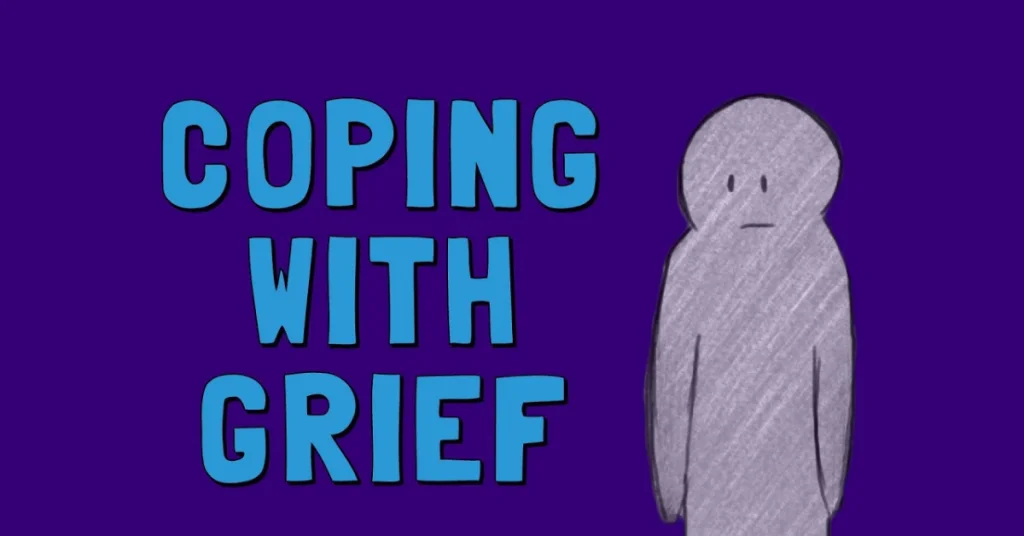Grief is a natural response to loss. It can be caused by the death of a loved one, the end of a relationship, or any other type of traumatic event. Grief can be very intense and overwhelming, and it can take a long time to recover from it. In this blog post, we will discuss different methods for coping with grief. We will explore the different stages of grief, the symptoms of grief, and how to cope with grief. We hope that this information will help you manage your grief and begin the healing process.
Contents
What Is Grief?
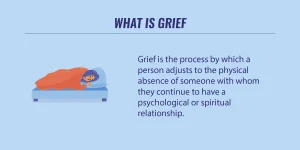 Grief is one of the most natural and common of human emotions. It is a reaction to any significant loss, whether it be the death of a loved one, the end of a relationship, or the loss of something important to us. Grief can be very painful and overwhelming, but it is also a necessary part of healing.
Grief is one of the most natural and common of human emotions. It is a reaction to any significant loss, whether it be the death of a loved one, the end of a relationship, or the loss of something important to us. Grief can be very painful and overwhelming, but it is also a necessary part of healing.
There is no right or wrong way to grieve, and everyone experiences grief in their own unique way. Some people may feel like they are able to cope well on their own, while others may need more support during this difficult time.
Sometimes, it can be hard to know how to help someone who is grieving. The best thing you can do is simply provide support and understanding, and let them know that you are there for them.
Difference Between Grief and Depression
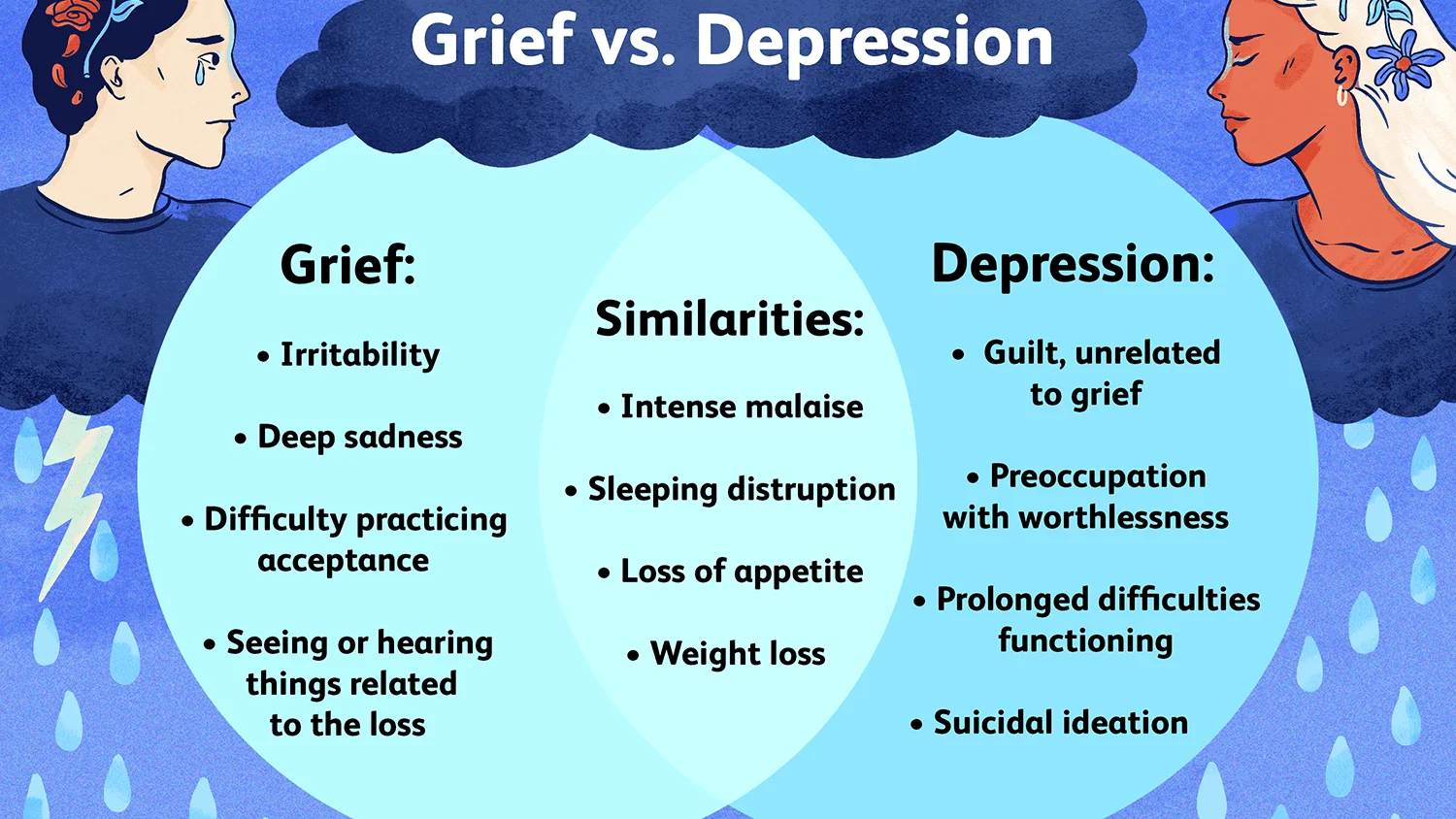
Grief and depression are two very different things. Grief is a natural reaction to loss, while depression is a mental illness that should be treated by a doctor.
Depression often accompanies grief, but it is important to note that not everyone who grieves will experience depression. Likewise, not everyone who experiences depression will have lost someone or something significant.
If you are worried about yourself or someone else and believes they may be experiencing depression, please seek professional help.
Stages of Grief
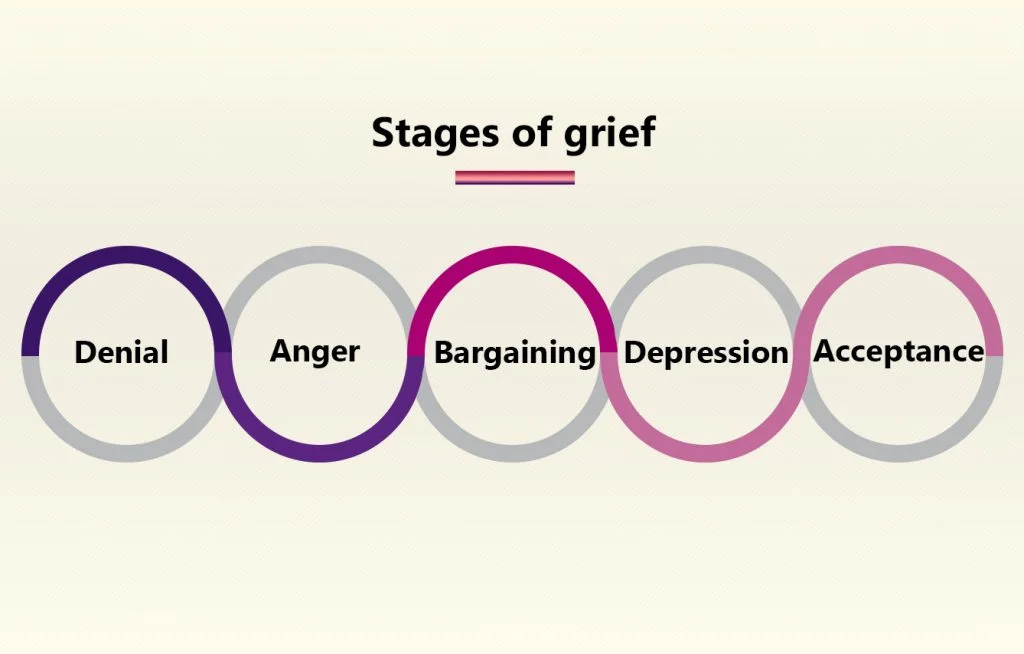
There are many different stages of grief, and not everyone experiences them all or in the same order. Some of the most common stages of grief include denial, anger, bargaining, depression, and acceptance.
Denial
This is often the first stage of grief, and it is usually a way of coping with the initial shock of the loss. People in denial may refuse to believe that their loved one is really gone, or they may try to ignore their feelings altogether.
Anger
After denial comes anger, which can be directed at anyone or anything connected to the loss. People in this stage may feel angry at God, themselves, or even the person who died.
Bargaining
Bargaining is when people start to realize that they are not going to get their loved one back and begin to make deals with God or Fate in an attempt to change things. They may offer anything from prayers to promises in exchange for bringing back their loved ones.
Depression
This is often the most difficult stage of grief, as people become overwhelmed by their feelings of sadness and loss. Depression can make it hard to eat or sleep and can leave people feeling hopeless and helpless.
Acceptance
Eventually, most people reach a point of acceptance, in which they come to terms with the death or loss and begin to move on with their lives. This does not mean that they forget about their loved ones, but rather that they find a way to live without them.
Signs of Grief
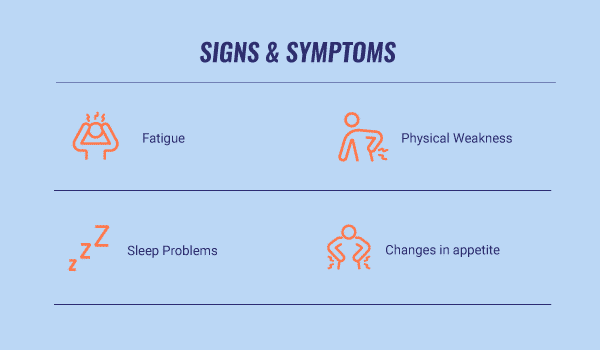
There can be many signs of grief, and they can vary from person to person. Some common signs of grief include :
Sadness
This also means crying a lot, feeling emptiness or numbness, and having trouble enjoying things that used to bring happiness.
Anger
This can manifest as irritability, frustration, and impatience. People in this stage may also feel like they are “going crazy.”
Guilt
Many people feel guilty after a loss, especially if they feel like they could have done something to prevent it. Others may regret things they said or did while the person was alive.
Anxiety
People who are grieving often experience anxiety and worry about the future. They may be afraid of being alone or of forgetting their loved ones.
Insomnia
Grieving people often have trouble sleeping due to the stress and sadness of their situation. This can lead to fatigue and other health problems.
Loss of Appetite
Grieving people often lose their appetite and have a hard time eating. This can lead to weight loss or even malnutrition.
Causes of Grief
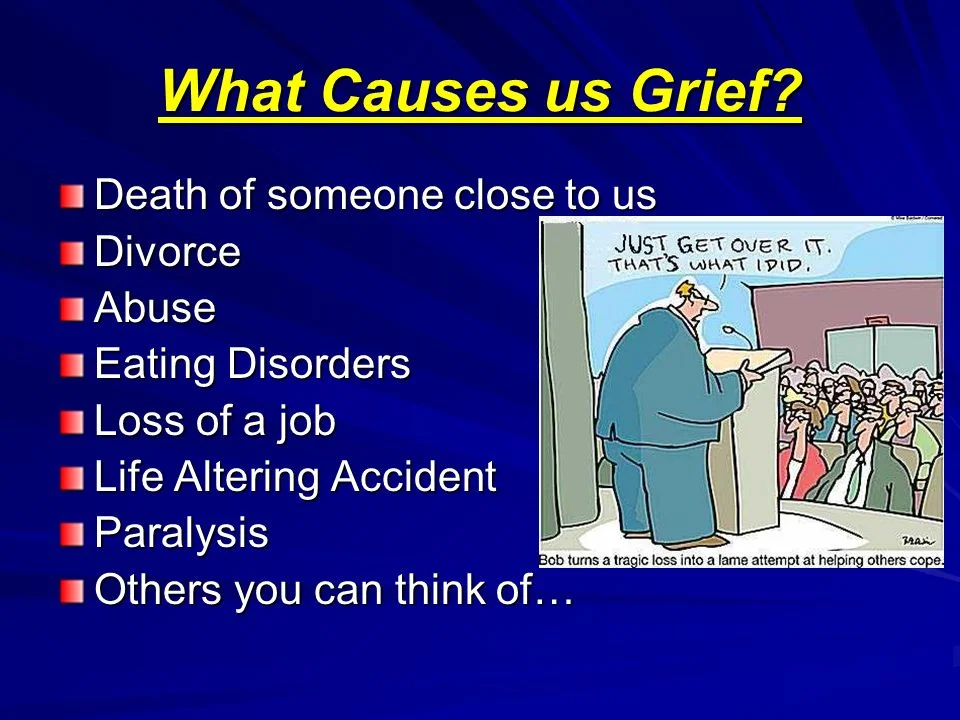
There can be many causes of grief as well, such as:
Death of Loved One
This can be the most obvious cause of grief, as it leaves people feeling sadness, emptiness, and loneliness. Sometimes the death is sudden and unexpected, while other times it may be anticipated.
Divorce or Breakup
Losing a relationship can be just as devastating as losing a loved one. People in this situation often feel anger, sadness, and loneliness.
Job Loss
Losing your job can be very stressful and can lead to feelings of grief, especially if you don’t know how you will support yourself or your family.
Moving Away from Home
Leaving behind friends and family members can be difficult, especially if the move is unexpected or unwanted. This can lead to feelings of isolation and loneliness.
Physical Illness
Grieving can also occur when someone is dealing with a physical illness or injury. This may be especially true if the person is facing their own mortality. Sometimes people grieve for the life they once had, before their illness.
When to Seek Help?
If you are experiencing any of these symptoms for an extended period of time, it is important to seek professional help. Grief can be very overwhelming and can affect your physical and emotional health if it is not dealt with properly. There are many resources available to people who are grieving, such as counseling, support groups, and therapy.
Coping With Grief
Grief can be a very difficult experience, but there are many ways to cope with it. Some tips for coping with grief include:
Talk About It
 You can also talk to your friends and family members about your loved one. This can help you to feel like you are not alone in your grief. Sometimes it can be helpful to write about your feelings or talk to a therapist.
You can also talk to your friends and family members about your loved one. This can help you to feel like you are not alone in your grief. Sometimes it can be helpful to write about your feelings or talk to a therapist.
Don’t Bottle It Up
This is one of the methods for coping with grief. It is also important not to bottle up your feelings. This can lead to depression and other health problems. Instead, find healthy ways to express your emotions, such as writing, painting, or exercise.
Take Care of Yourself
 You should also take care of yourself both physically and emotionally. This means eating healthy foods, getting enough sleep, and exercising regularly. You may also want to consider therapy or medication if you are feeling overwhelmed by your grief. These are just a few of the ways that you can cope with grief.
You should also take care of yourself both physically and emotionally. This means eating healthy foods, getting enough sleep, and exercising regularly. You may also want to consider therapy or medication if you are feeling overwhelmed by your grief. These are just a few of the ways that you can cope with grief.
Learn What Works for You
This is one of the methods for coping with grief. What works for one person may not work for another. It is important to find what helps you to deal with your grief and stick to it. This could include writing, talking to friends or family members, listening to music, or spending time outdoors. Grieving is a very personal process and there is no right or wrong way to do it. Just remember that you are not alone in your journey.
Talk To Therapist
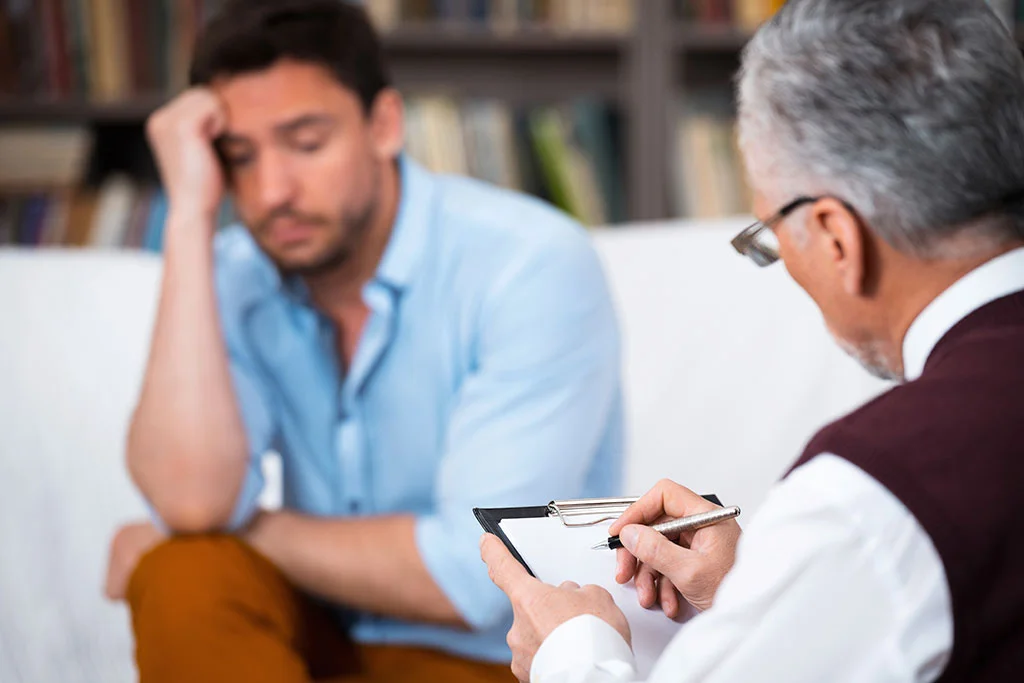 If you are feeling overwhelmed by your grief, it may be helpful to talk to a therapist. They can help you to process your emotions and deal with the pain of loss. There are many resources available for people who are grieving, such as counseling, support groups, and therapy.
If you are feeling overwhelmed by your grief, it may be helpful to talk to a therapist. They can help you to process your emotions and deal with the pain of loss. There are many resources available for people who are grieving, such as counseling, support groups, and therapy.
Do What Makes You Happy
This is one of the methods for coping with grief. You should always do what makes you happy. This could include spending time with friends and family, going on vacation, or doing something that you enjoy. Don’t let grief keep you from living your life the way you want to live it.
Try To Find New Normal
 This is one of the methods for coping with grief. It is important to try to find a new normal after a loss. This may take time, but it is possible. You may find that your life will never be the same as it was before, and that is ok. There are many different paths you can take in life and you should choose the one that makes you happy.
This is one of the methods for coping with grief. It is important to try to find a new normal after a loss. This may take time, but it is possible. You may find that your life will never be the same as it was before, and that is ok. There are many different paths you can take in life and you should choose the one that makes you happy.
Make New Memories
It is also important to make new memories. This can help you to move on from the past and start living in the present. You can do this by going on trips, making new friends, or trying something new. The key is to keep moving forward and not let grief consume your life.
Take Time for You
 This is one of the methods for coping with grief. You should also take time for yourself. This could mean taking a relaxing bath, reading your favorite book, or going for a walk. Just make sure that you find some time to relax and de-stress. It is very important to take care of yourself during this time.
This is one of the methods for coping with grief. You should also take time for yourself. This could mean taking a relaxing bath, reading your favorite book, or going for a walk. Just make sure that you find some time to relax and de-stress. It is very important to take care of yourself during this time.
Try To Face Your Feeling
You should also try to face your feelings. This can be difficult, but it is important. If you avoid your feelings, they will only become stronger. It is ok to feel sad, angry, or frustrated. Just make sure that you express these emotions in a healthy way. You should also seek professional help if you are struggling to cope with your grief.
Take Break
 If you are feeling overwhelmed by your grief, it may be helpful to take a break. This could mean taking a day off from work, going on vacation, or spending time with friends and family. Just make sure that you take some time for yourself so that you can relax and recharge. It is also important to remember that you are not alone in your journey. There are many people who can help you through this difficult time.
If you are feeling overwhelmed by your grief, it may be helpful to take a break. This could mean taking a day off from work, going on vacation, or spending time with friends and family. Just make sure that you take some time for yourself so that you can relax and recharge. It is also important to remember that you are not alone in your journey. There are many people who can help you through this difficult time.
Conclusion
Grief is a very difficult process and there is no right or wrong way to deal with it. Sometimes, grief can feel like it’s too much to bear. If you are feeling overwhelmed by your grief, it may be helpful to talk to a therapist. They can help you to process your emotions and deal with the pain of loss. There are many resources available for people who are grieving, such as counseling, support groups, and therapy. Just remember that you are not alone in your journey.
A Word From Therapy Mantra
Your mental health — your psychological, emotional, and social well-being — has an impact on every aspect of your life. Positive mental health essentially allows you to effectively deal with life’s everyday challenges.
Also, at Therapy Care, we have a team of therapists who provide affordable online therapy to assist you with issues such as depression, anxiety, stress, relationship, OCD, LGBTQ, and PTSD. You can take our mental health test. You can also book a free therapy or download our free Android or iOS app.
